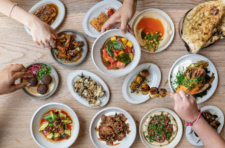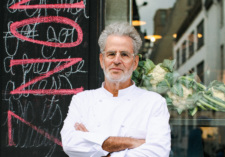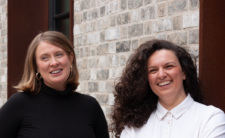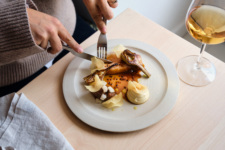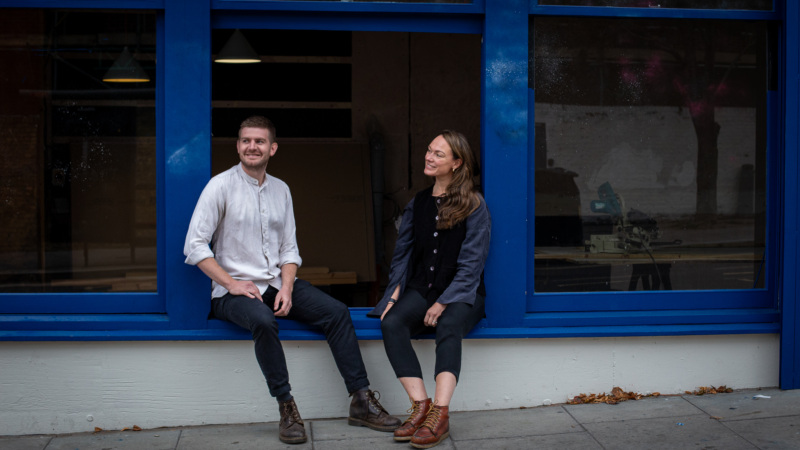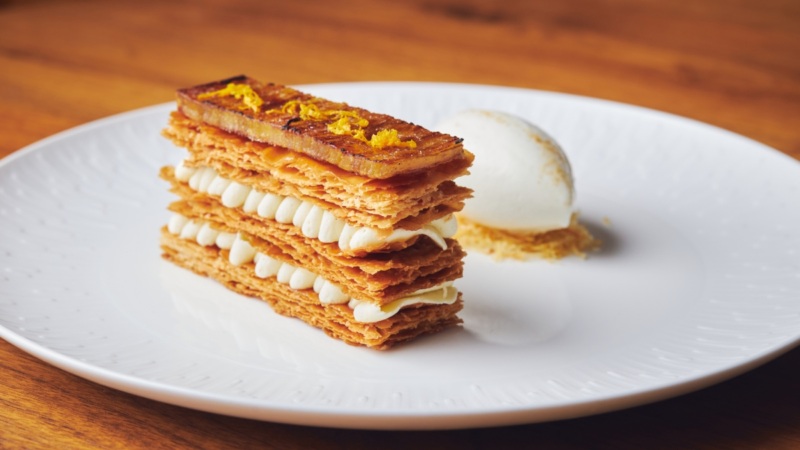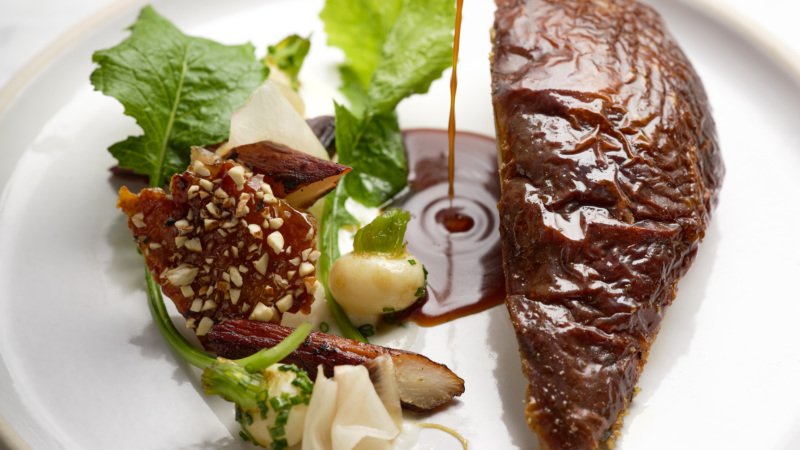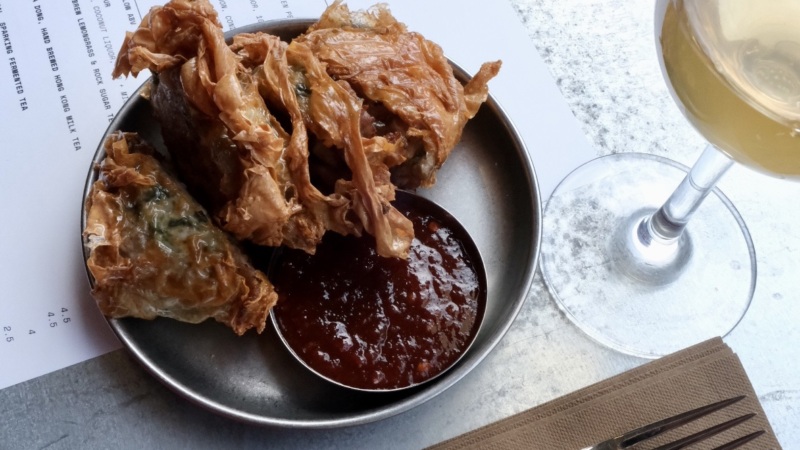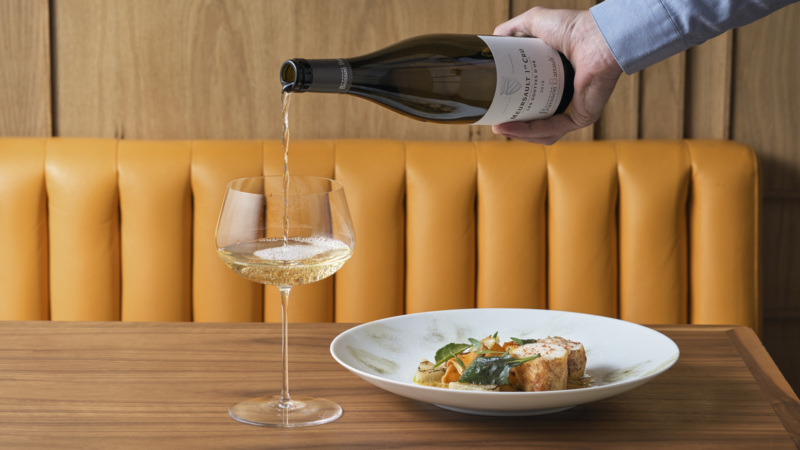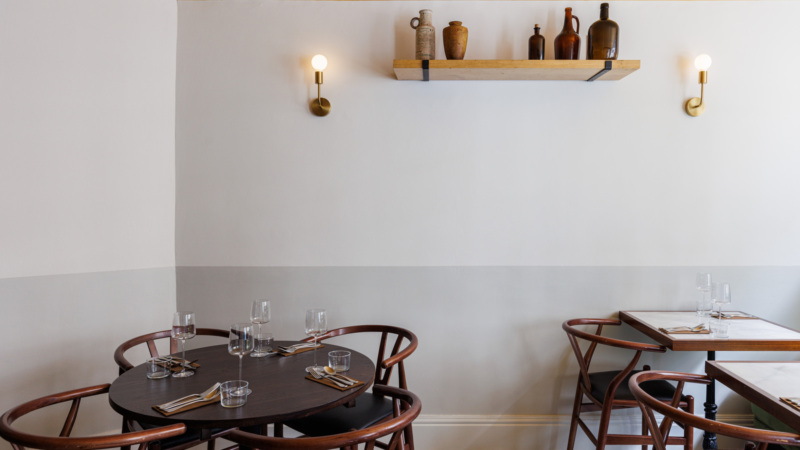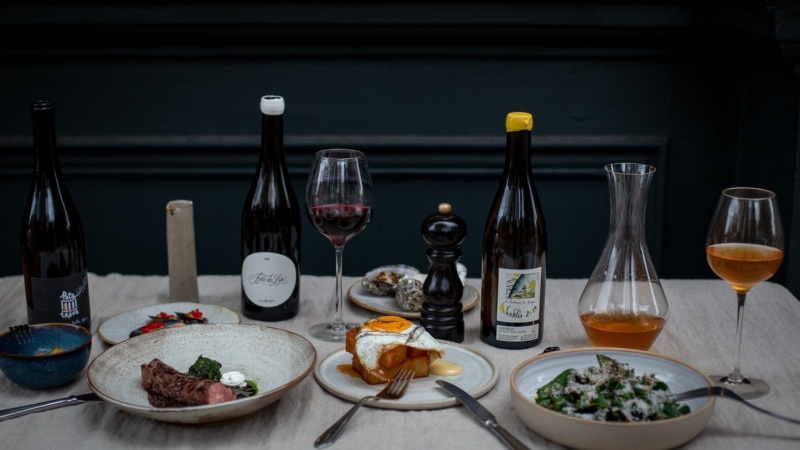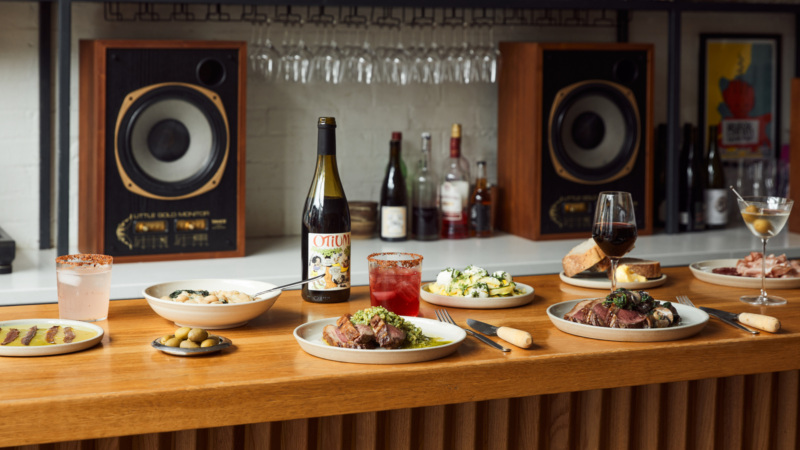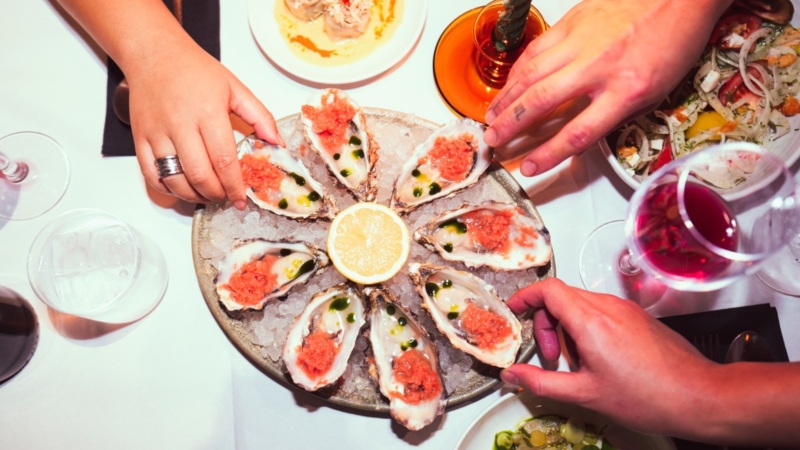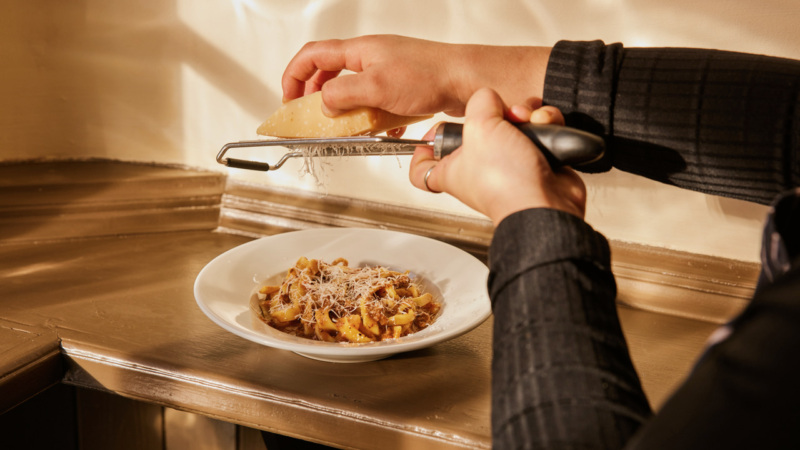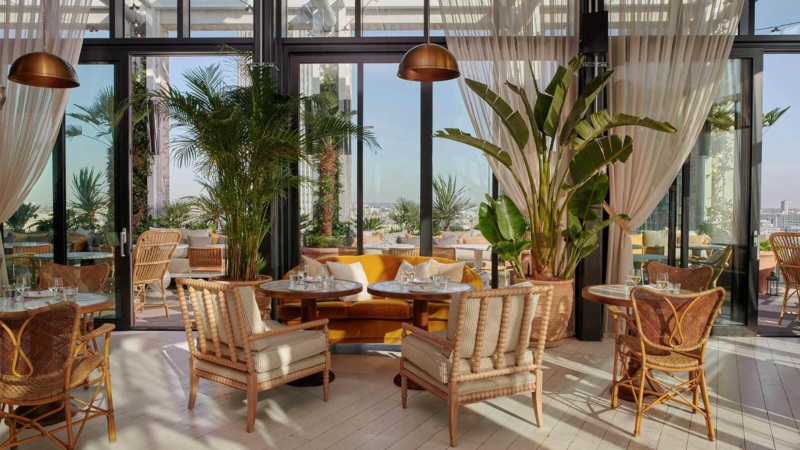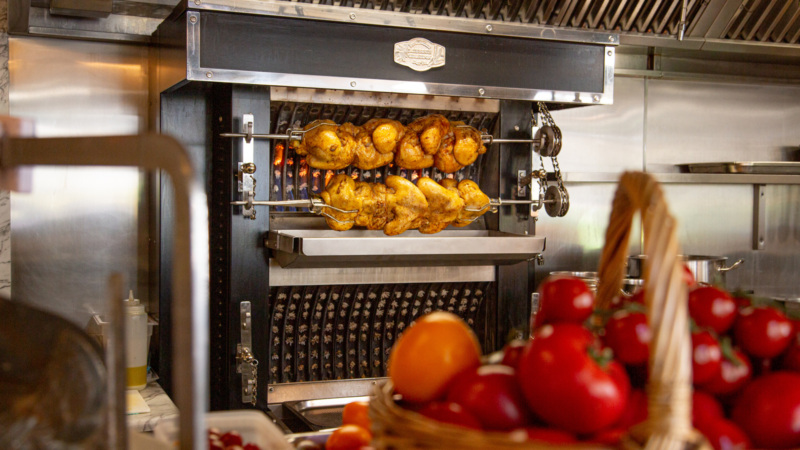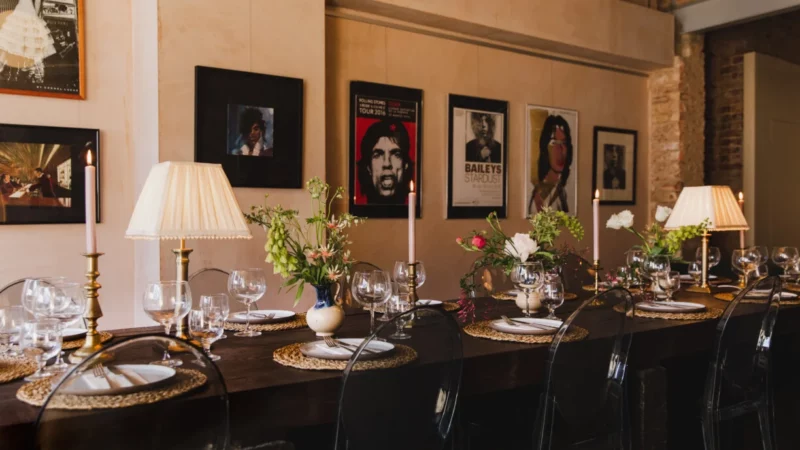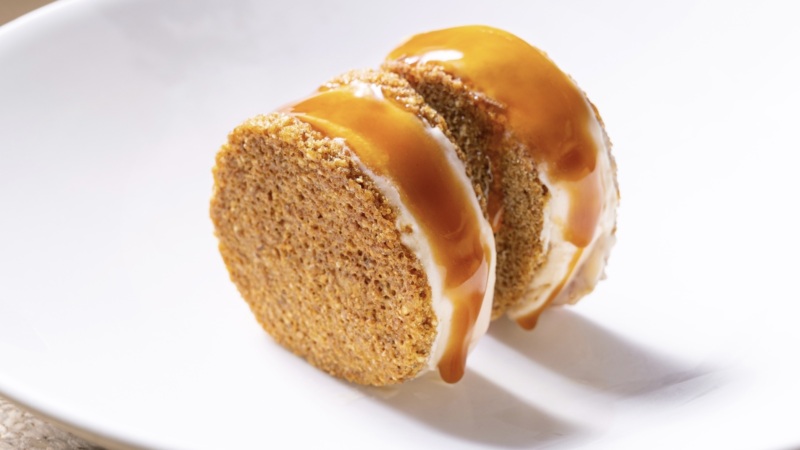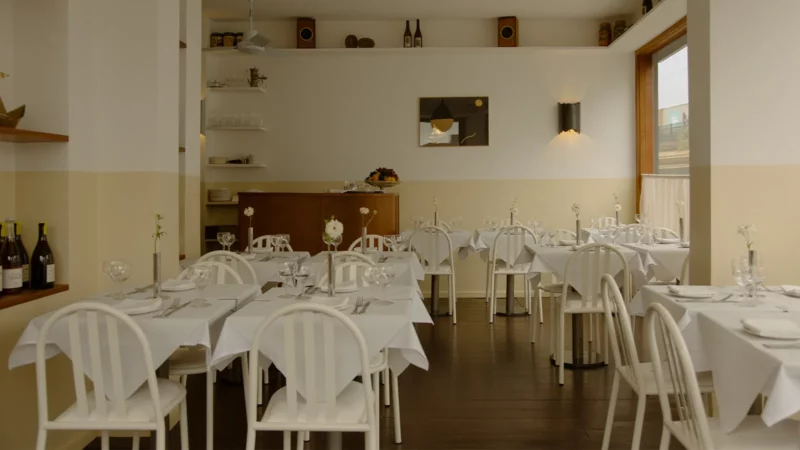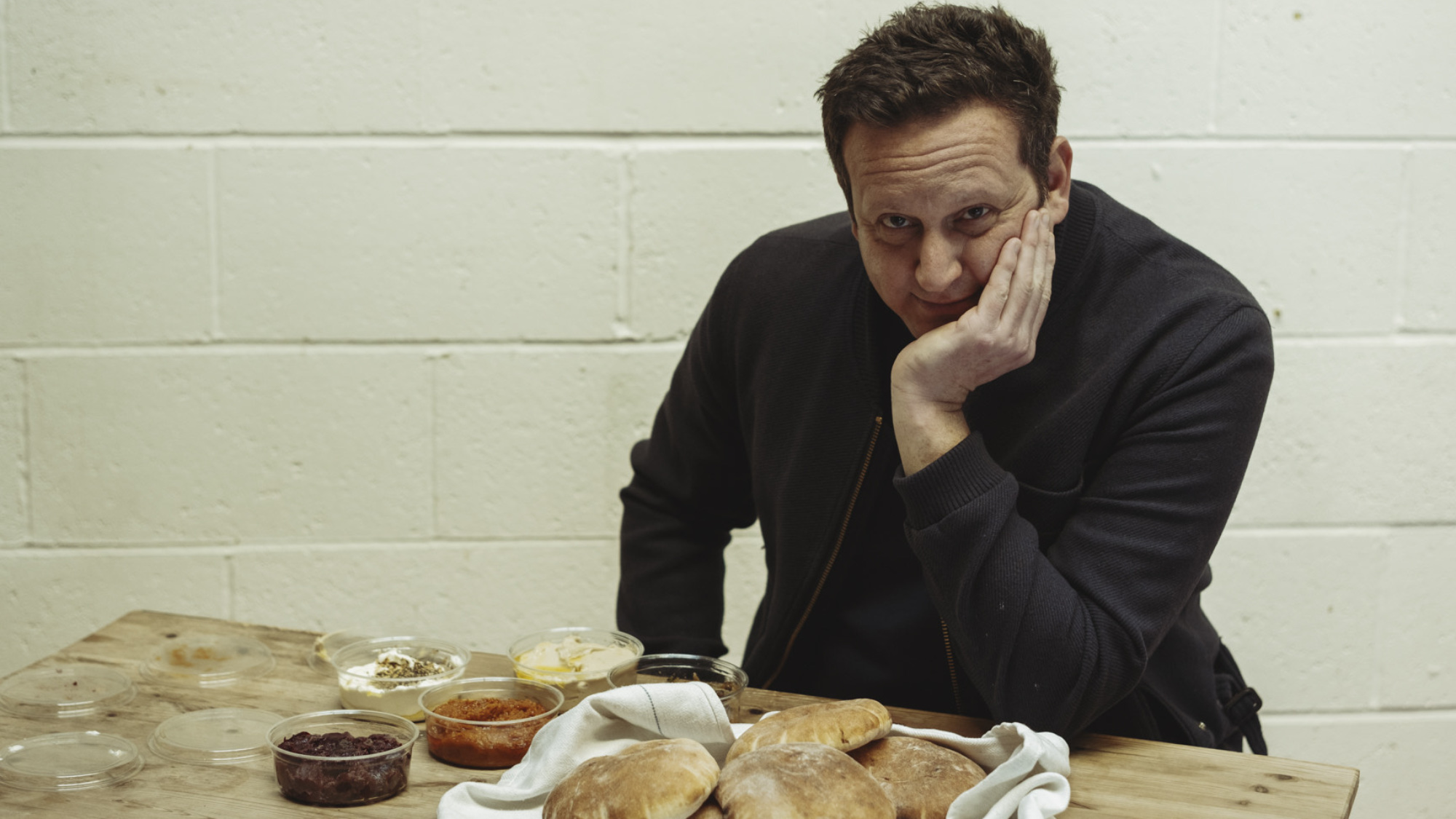
Why Passion and Care Are The Secret Ingredients to Oded Oren’s Success
Oded Oren’s tiny Dalston restaurant Oren is the ultimate “there’s a little place I know”. Having launched in 2019, mere months before the pandemic, the Tel Aviv-inspired indie’s success was built by word of mouth, initially on the back of its lockdown takeout offering, later on its low intervention wines, exhilarating charcoal cooking, and flawless energy.
If an East London chef has a night off, there’s a good chance you’ll find them at Oren. What are they eating? Maybe the amba chicken skewers with toum, possibly the hake arayes and lamb fat, and most certainly the offal-packed Jerusalem mix grill pita which – we’ve said before and we’ll say it again – is one of the singular best things you can do in London with a tenner.
Oren grew up in an Ashkenazi Jewish family in Tel Aviv. As he got older, he was exposed to cooking from across the Middle East – Iraq, Morocco, Tunisia, Libya – and would eat out regularly with his dad in Kerem Ha Teimanim, an area known for its traditional Yemenite cooking. He immersed himself in classical French and modern European cooking at Israel’s renowned Tadmor culinary school; earned his stripes in Paris; and worked his way up to head chef at Turkiz in Tel Aviv.
But it wasn’t until he moved to the UK in 2011 and started doing his own pop-ups that something “clicked”, as he puts it in his debut cookbook Oren, released at the tail end of 2022. “It wasn’t about money or recognition, it was about connecting to the dishes that had first captured my imagination as a child, and being able to share that experience with others.” A six-month residency at Louie Louie and a glowing review from Jay Rayner convinced him that, yes, his food was “special” enough to serve in a restaurant.
In the decade plus since Oren arrived in London, it seems to have clicked with Londoners more widely that Israeli cuisine is something to be sought out. Perhaps it was the Palomar that started it back in 2014, but Bubala, Berber & Q, The Barbary and pita slingers like Miznon and Pockets have come along since and are among some of London’s most beloved dining spots. Oren’s itching to take it even further and is ready to make his next move, the opening of Oren Delicatessen on Ada Street off Broadway Market in early February. For Oren, it’s a chance to specialise, to go big on baking – his pitas are exceptional – and explore the global home food traditions he yearns for from Tel Aviv. We caught up with Oren pre-opening to hear all about the new deli, and how his eponymous restaurant is steering through a particularly challenging period for food businesses.
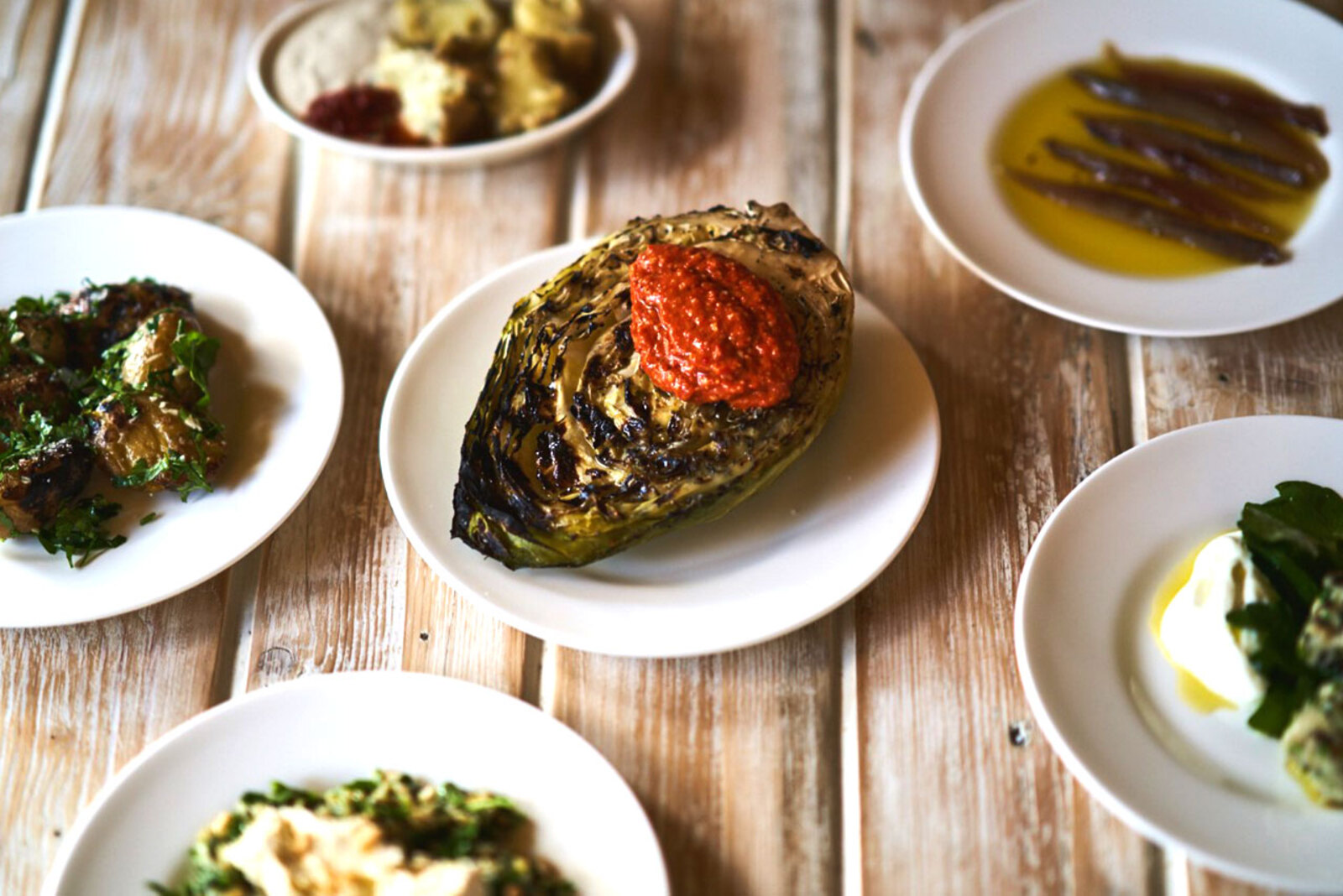
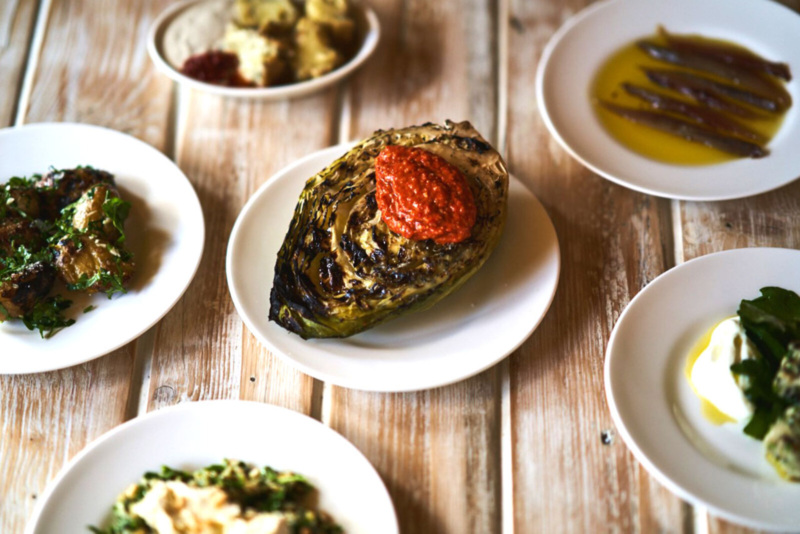
What can we expect from Oren Delicatesssen?
“The idea started not a long after Oren opened when we were forced to do a new thing – takeaway. I’d been thinking about doing a delicatessen anyway but the pandemic was a trigger. We learned that people really like our food and are even OK with it coming in boxes.
The delicatessen is going to serve the kind of food that I liked to have when I was a kid, simple stuff. Most of it we’re going to make in-house, from the breads to the dips and spreads. I don’t really want tables inside – maybe further down the line. I want it to be somewhere people can pick up some salads, fresh dips, some pitas, some wine, so they can have a whole meal instead of buying something frozen or going to the supermarket. Then, on the weekends, I’m planning to do homecooked food like stuffed vegetables, koftes and slow-cooked stews. I’m doing to try to serve them warmish so they’re ready to eat or you can take them home to reheat. The vision is to sell out before they get cold but we’ll see about that!
I’ll be doing a traditional dish called chraime with fish cooked in spicy sauce made of tomatoes and caraway; also stuffed onions with lamb and rice, braised slowly in chicken stock – very laborious but very fun; and maybe a stuffed pepper with some freekeh and herbs, maybe with a side of speckled rice mujadara.
Most of my food memories were from eating other people’s foods, I would say. My mum worked really hard, I mean she was a good cook, but she didn’t really have a lot of time so I spent a lot of time with carers who would cook, some of them were from Jewish Moroccan roots, Jewish Libyan roots, or Yemeni. I think that exposure really opened my mind and my palate as a kid. These are the kinds of memories that I’m thinking of when I think about the food I do, specifically the food in the deli. It’s very hearty and nourishing and flavoursome.
I don’t think that going to a restaurant today is a cheap thing to do — you need to have money.
I’m not going to price it very high; I want it to be affordable as much as possible. Where I’m from, Tel Aviv in Israel, it’s quite common to find places where you can pick up something nourishing and filling and comforting to eat when you don’t have time to cook but want really nice food. It’s one thing I kind of miss here.
The whole idea bubbled away for a while until I came across the site I’m now taking over [formerly Isle of Olive] from a friend. One of my first pop-ups as a young chef in London was in their shop. I cooked there because I loved it. I’m happy I’ve been able to repurpose the whole shop, so didn’t have to spend a fortune redoing it. It’s easy to chuck everything out and buy new but I wasn’t up for that. I think part of my decision to take the shop was because I loved it.
I don’t really have any ambitions to open another restaurant; you can’t really duplicate yourself. I think the deli is something else I can give the city that it doesn’t already have. I’m very passionate about it and I do believe that whenever passion is involved in the making of things, it’s going to turn out to be a success.”
To what extent is it a response to the current economic climate?
“It’s passion driven. Obviously, there are financials to consider but the reason I’m doing this is passion. To be honest, I don’t know if it’s the right climate do to anything but this is what I do. I’m not going to wait for anything. It’s never a good time. There’s always something. I’m a believer that when you do something good, people will buy it. I rarely see stuff that is done right in this town that is not successful.
The chance we had to trial out most of the stuff that is going to be in the deli in the restaurant was fantastic. I’m at Oren every day even if not in the kitchen, hearing customers, talking to people; that helped me understand what people are looking for. I don’t have business partners, it’s only me, so that makes things a bit easier decision-wise.
I’m not calling it a bakery – I’m not a baker – but it is a bakery. I want bread to be the main thing. My pita recipe hasn’t changed. They’re hand-rolled, not machine-rolled, and baked in a bread oven, not the typical pita oven you see in Israel. I wouldn’t say it’s very commercial; I don’t envisage doing wholesale pitas.
I think that we are doing something very different. I’m not doing sourdoughs; I’m not touching that. I’m not doing croissants. I’m not doing coffee. It’s all saturated. I’m going to focus on the two breads that we were doing here for the past three years, the pita and the challah, and maybe along the way add a few more Israeli or Balkan pastries. Anything I do will be something that you can’t really find elsewhere.”
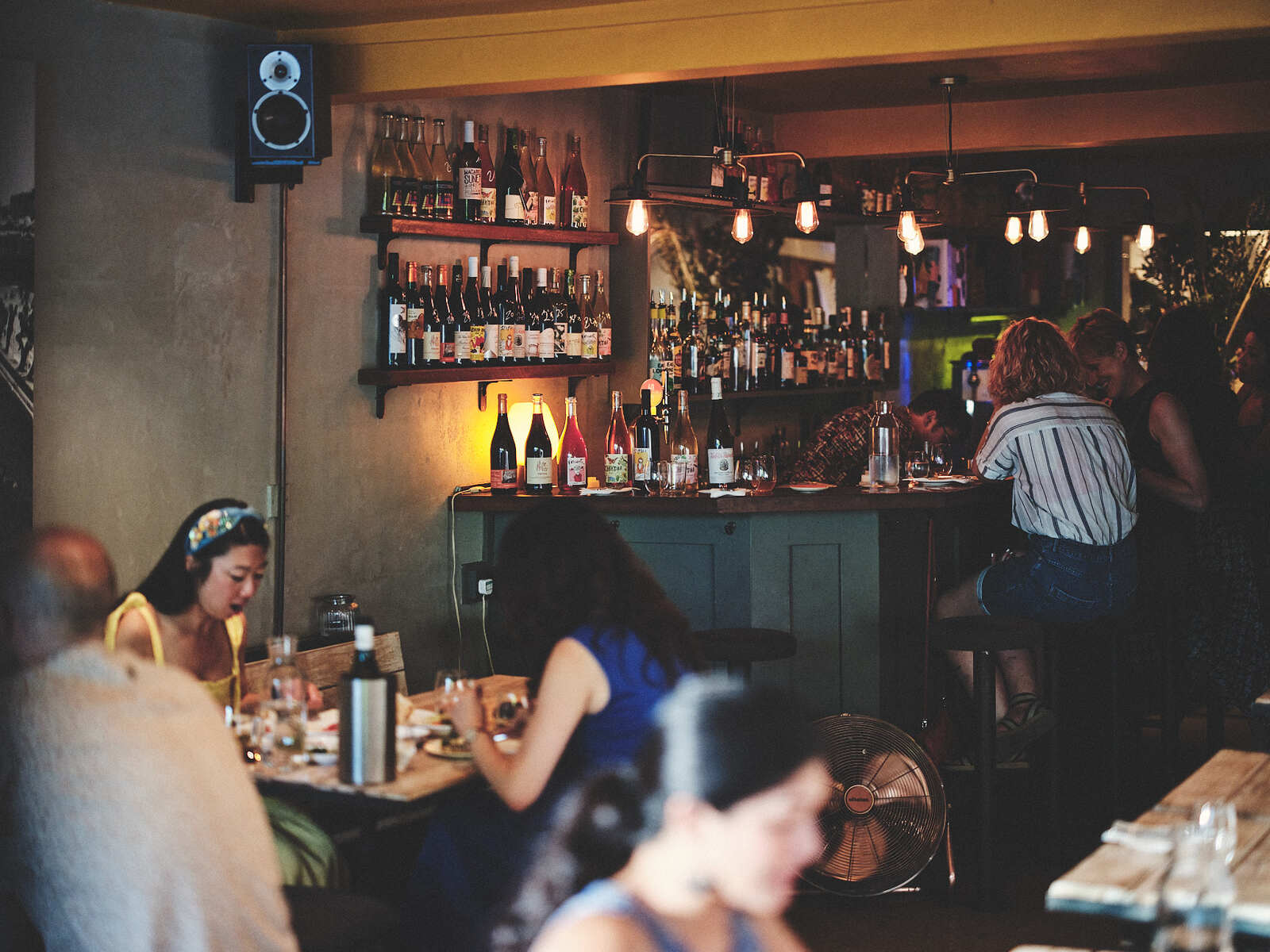
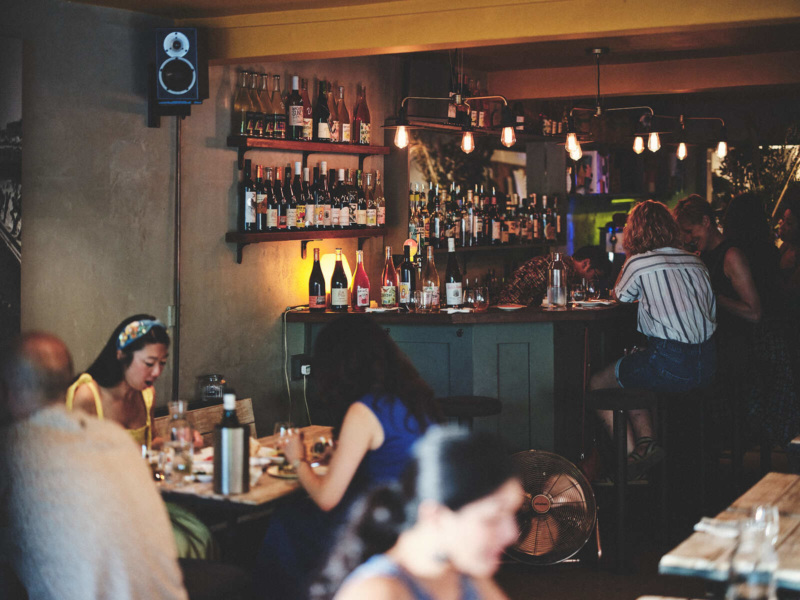
Last time we spoke to you, you spoke about keeping Oren affordable. How challenging is it to do so with increase energy bills, food costs and the cost-of-living crisis?
“It’s tricky. You can still get that mixed grill that everyone likes for the same price that we had it a year ago. I didn’t raise the price on that dish. Which I should have! I work carefully with the kitchen on costing. There’s a certain GP [gross profit] we aim for but it doesn’t necessarily mean that every dish will hit that mark.
I go out to eat a lot and I still think we’re very affordable. Let me put it this way, I don’t think that going to a restaurant today is a cheap thing to do; you need to have money, that’s definitely the case, but I do think you can come to Oren and spend £35, £40 and you’ll be really happy. Saying that, one of our signature dishes is ox cheek, quite a substantial dish, we now charge £32 for it. A year ago, I think we charged £18 or £19. This is where the difference is; it’s just costing us so much to do it. My chef didn’t want to do it, saying it’s too expensive, but I said I know we’ll sell it and we only have one dish like that on the menu. It’s very laborious and takes hours to make the stock and the sauce and the meat is very expensive, you have to trim a lot. It needs to cost that, what can you say? A lot of places are shrinking the size of the portions. We haven’t touched the size of the portions. That’s something I’m not willing to do.
We were fearful in January but we’ve been really busy since the beginning of January so I’m grateful for that. The staff, chefs, and front of house, have all been here for two, two and a half years which is quite remarkable for such a small independent young business. It says a lot about the business, and the feeling customers get when they come here. What I get from people is that the vibe at Oren is very unique. I kind of believe that will replicate itself at the deli.”
Oren Delicatessen will open in February. Follow them on Instagram here.
Make a reservation at Oren here. Pick up a copy of Oded Oren’s debut cookbook here.
Hilary Armstrong is a London-based journalist and editor. Follow her on Instagram and Twitter. Follow Resy, too.


